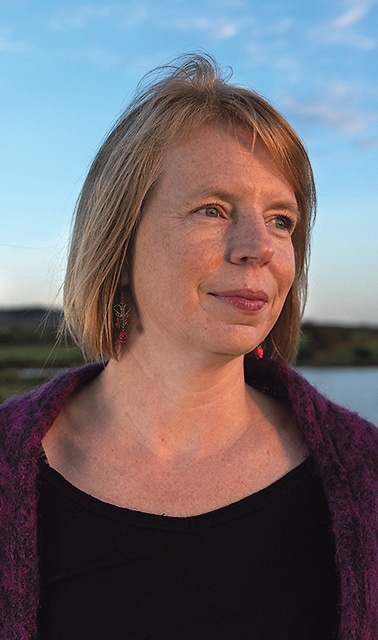
End of Life Matters
End of life Doula Melissa Murphy, a companion, guide and resource supporting our community in end of life matters.
www.starsbeyondourskin.com
“Death is the last intimate thing we ever do”
-L.K. Hamilton, writer
One day we’ll receive news or may even sense that a beloved friend or family member is dying. Someone recently got in touch with me relating their own experience of this. They shared how their inclination was to wait for a cue from a dying friend. However, the acknowledgement of their friend came to mind first. For example, asking ‘Do you think you are dying?’ And yet they tended to hold off for their friend to begin the conversation, finding it never happened. They wonder if there is another way. This is a challenging situation to engage with; talking with people about dying when we don’t know if they are ok with it.
It feels difficult to talk openly about death for many; particularly for those uncomfortable with the topic in general. It’s understandable as avoidance has long been the way in our society but like many other things, it’s a skill that can be practiced. While these are tender conversations to have with those we love, becoming more comfortable can be helpful in the way we meet these situations in the future. Being open to communicate about death and dying is actually a gift to the people we love. This may seem like a different way to think about it, but it’s consistently heard by those who work in end of life care, as one example. I’ve witnessed it countless times in my role as an end of life doula and through personal stories within my own support network. Whether we engage in talking about dying or not doesn’t make it happen faster nor can we slow it down by staying quiet about it. There can be fear and discomfort as we begin to do so, but we’re not alone in our shared humanity. We can do this, however awkward it might seem at the start.
Another prompting for this month’s topic was a blog by a hospice worker. They wrote about a situation where a patient’s closest family member/next of kin said that talking about death and dying was depressing and negative. The patient expressed a wish that their loved one might reconsider; feeling they’d be less lonely in their dying experience. Sadly, both parties have to be willing for this dialogue to happen. Education can be offered which can sometimes facilitate the process, however, those of us who help others navigate at the end of life must always meet people where they are as opposed to where we think they should be. This is also a good practice for anyone accompanying the dying.
That person I mentioned earlier who waits for her friend’s cue has done beautifully because following the dying person’s lead is always optimal. The dying person will ultimately choose if, when and with whom to share with. What’s needed at this time in their life is most important. These include: autonomy, dignity, appreciation, listening, support as well as space. It’s been said that some need space while others need a hand to hold, so we can be what they need when asked. It’s also important to bear in mind that as someone is dying they’re also still living. Being included in the day to day conversations and activities as they’ve always done is also important as long as that’s what they want.
Of course there are also some people who know they are dying but avoid talking about it. This too is a choice to be respected. Yet, more often than not, people feel respected and supported by openness and honesty in these conversations so it’s definitely encouraged to ask questions (which the person may answer or not) and to let them know you’re willing to be there to talk and (especially) listen if you are indeed comfortable doing so.
If given the chance, be someone that leans in rather than avoids this chapter of your person’s life. They will feel cared for and may feel welcomed by your invitation to share their thoughts, feelings, fears. Being mindful that there is nothing to fix or change, but letting them know they’re heard means the world. Advice-giving is generally not appreciated, but a few questions may include: what do you think is happening? What do you want and need most? How can I support you? It’s never too late (or too soon!) to share your feelings for them, what they’ve taught you and to express your gratitude.These experiences can be life affirming. Know that it’s no small act to show up during this precious transition time of equal importance to all others. It can change the way we experience living and dying.
To learn more or to connect with Melissa, email her at starsbeyondourskin@gmail.com or visit www.starsbeyondourskin.com.
She also welcomes your questions or ideas for future columns.


